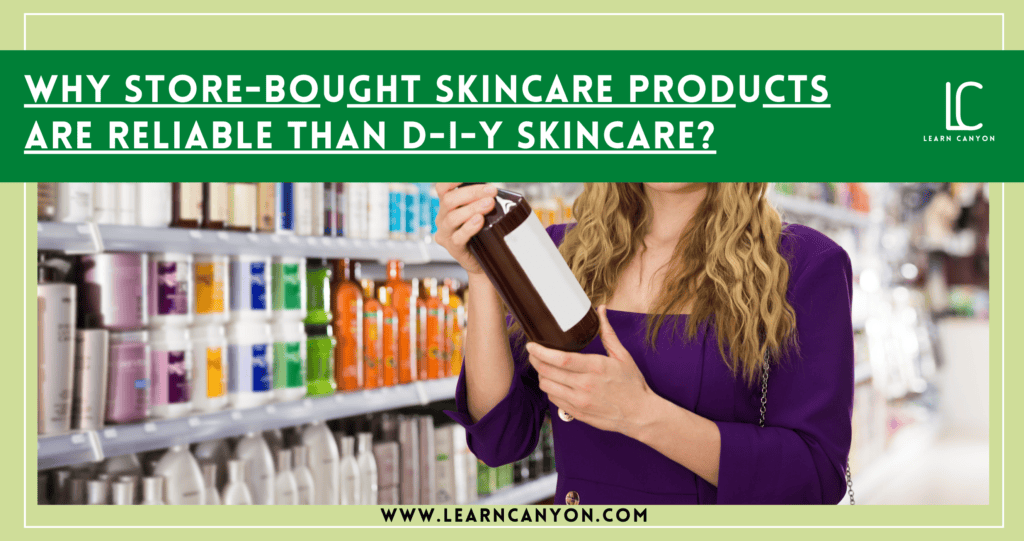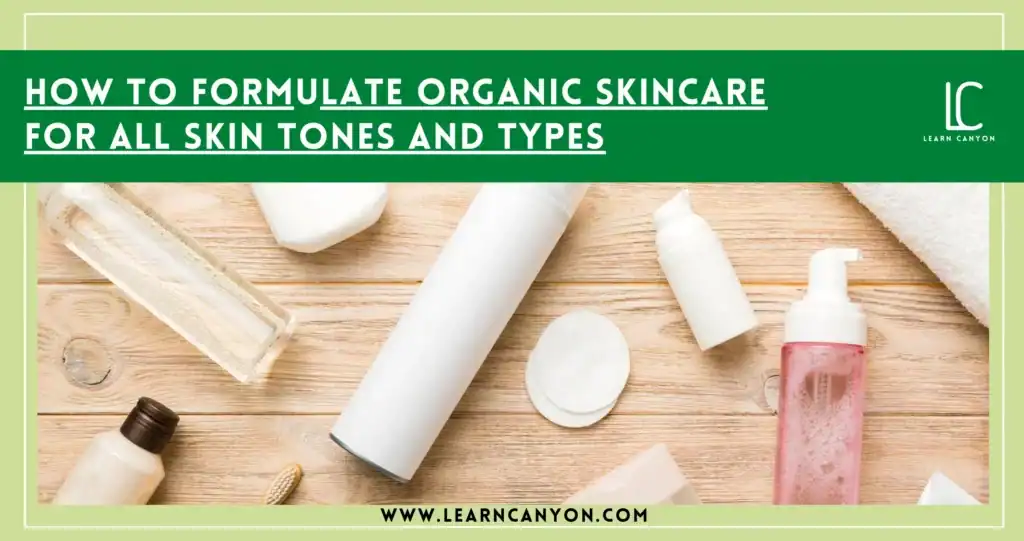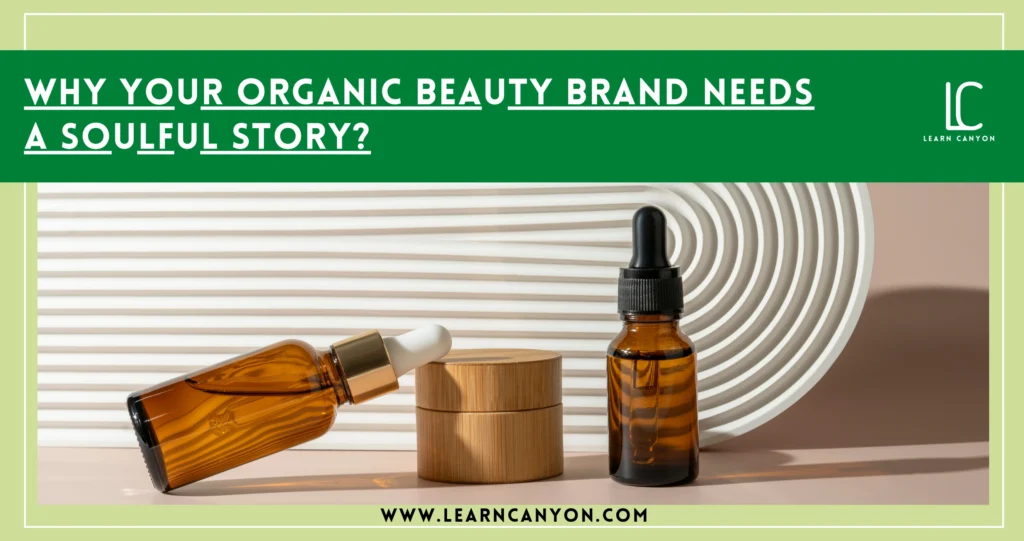Have you ever stood in a high-end skincare aisle and wondered why those products are shockingly expensive compared to DIY skincare alternatives? While it may be tempting to turn to homemade skincare remedies for their natural and budget-friendly allure, there’s more than meets the eye.
In the era of DIY skincare remedies taking over social media, it’s easy to get carried away with the idea that whipping up a skincare product at home is the best route for your skin. But, is it as efficacious and safe as it’s made out to be?
While there’s comfort in knowing exactly what’s going into your product, store-bought skincare alternatives are often more dependable.
Let’s discover why certain store-bought skincare products offer more than just fancy packaging but also an assurance of safety, regulation, and effectiveness that often surpasses DIY counterparts.
This article will help you grasp the root cause of why professionally formulated skincare products might be the better choice for your skin health.
Understanding the Limitations of DIY Skincare
DIY skincare refers to the practice of formulating skincare products from scratch on your own, without the assistance of a professional formulator or purchasing materials from a store.
A DIY skincare product must be much superior, healthier, and more affordable than anything you can purchase. WRONG!
The truth is that DIY beauty product enthusiasts may not only endanger their skin but also leave it open to a wide range of harmful substances due to this misperception.
Making homemade skincare products has long been a practice in many cultures around the world, and almost all of us have done so at some point in our lives (whether out of necessity, because we enjoy the process, or to live a healthier and more environmentally friendly life).
However, “homemade” or “DIY” does not always equate to “safe,” and there are many common foods that, when applied to the skin, can trigger allergies and other issues.
Potential drawbacks of DIY skincare
- Lack of expertise in formulating effective skincare products
The molecular form of the ingredients in DIY skincare products is incorrect. People who perform formulation without any expertise and knowledge to create a DIY face wash, scrub, serum, etc end up with viable consequences as they have zero knowledge about the chemical reactions and physiochemical properties of the natural ingredients they choose to use.
Simply combining strawberries with other components to make face cream and applying it to your face won’t provide you the benefits of its quality. Cosmetic formulators are aware of the proper molecular form in which an ingredient should be introduced so that your skin can properly and proportionately absorb it. You won’t benefit from the recipe and will instead be wasting ingredients. You unconsciously allow skin diseases.
- DIY skincare quickly degrades
Preservatives have a poor connotation, yet they are crucial if you want your cosmetics to last a long time and not quickly go bad.
The majority of the chemicals in skincare products quickly expire. Making DIY skincare products comes with a significant danger of going bad and the potential for introducing bacteria to your skin, which can have negative effects. Because of this, we believe that using skincare products from the store is preferable.
- DIY skincare does not have the Correct Ingredient Concentration
Our skin is designed in such a way that it is effective at keeping out dust and grime, as well as cosmetics. Therefore, the skin can’t truly soak all of the moisturiser when you apply it.
Cosmetic manufacturers are aware of this and design their products with an adequate component concentration for skin absorption. Because moisturisers and serums contain a highly concentrated dose of product that is quickly absorbed by the skin, they have recently become highly prevalent.
- Potential for contamination
This contamination usually occurs due to the combination of homemade ingredients that seem promising to the EYE but are dangerous to the skin barrier.
The use of kitchen ingredients can occasionally lead to disastrous results. Although many of these are present in products, many consumers are unaware of how they interact.
Sometimes we can fully comprehend how these components interact, which might result in a large mess of contamination on the skin. Instead, search for a face product from the market that addresses your skin issue.
- Unpolished DIY scrubs can harm your skin
Homemade scrubs are the most well-liked but even though you will feel refreshed after using them, many DIY scrubs contain unpolished particles that can cut your skin microscopically, damaging it and allowing additional bacteria to enter it. So DIY scrubs are unsafe.
- Sterilization Issues
Every DIY cosmetic product that contains water has the potential to serve as a breeding ground for bacteria and mould.
Maintaining your formulations in a sterilised state and storing them in an airtight container in a cool, dark environment will help them last longer. Even overnight keeping can be problematic for recipes that call for milk and other perishable components.
That’s why professional formulators of cosmetic companies are aware of this before preparing any skincare products.
- Limited Use
The necessity to continuously replace homemade cosmetics is one of their main drawbacks. It’s so limited.
They only survive a small portion of the time it takes preservative-containing cosmetics to reach their expiration date, even when sterilized and stored properly. You can only profit from your creations if you’re willing to put in the time and effort.
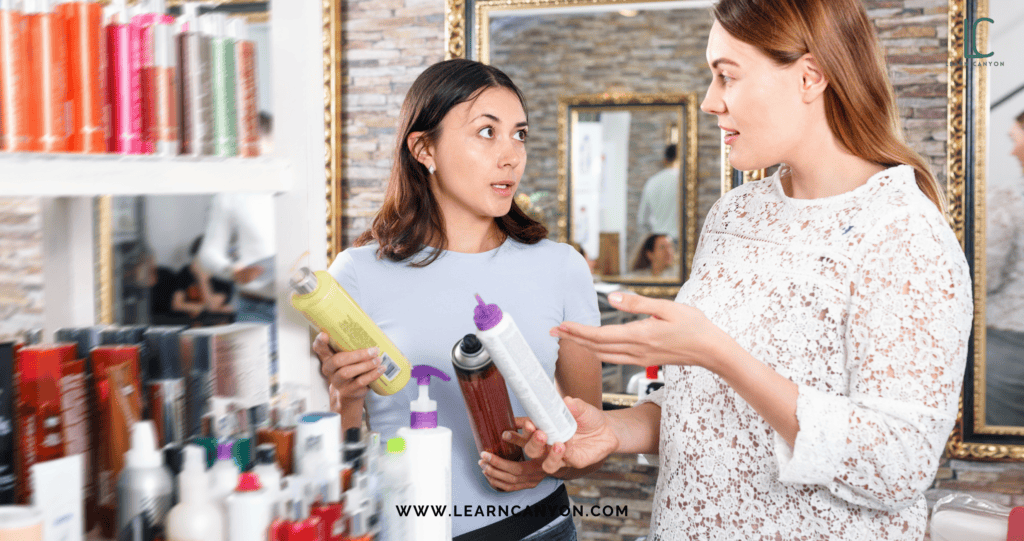
NOT Recommended Ingredients
Certain homemade ingredients are seriously not recommended for their hazardous effect on the skin. And many DIY skincare followers don’t know about this and are influencing others to do the same.
- Lemon Juice
Although it is frequently used as a skin whitener, its pH is so acidic that it usually harms the skin’s barrier. In addition, skin that has been treated with lemon and exposed to the sun may experience an allergic reaction. According to a 2019 study, applying lemon to your face might lead to leukoderma, sunburn, and skin irritation
- Utilizing Toothpaste to Treat Acne
You’ve all heard about this one.
Your pimples may dry out if you apply toothpaste to them. Use a cotton swab, and in the morning, you’ll have clear skin.
Hydrogen peroxide, baking soda, and essential oils are all present in toothpaste and can be beneficial. However, you might be doing more harm than good. Most toothpastes contain sodium lauryl sulfate, which is too abrasive for blemishes.
If you have sensitive skin, toothpaste can cause redness and increase the frequency of breakouts as well as
- Raw Eggs
It’s a trend to use raw eggs; doing so will only result in outbreaks, blisters, and scars. Avoiding it at all costs is advised because it pulls on the skin and causes discomfort.
Remember that salmonella bacteria can lurk in a section of the egg, even though it is well known and utilised for its tensing effect on the skin
- Scrubbing With Cinnamon
Beauty blogs make DIY face masks and top them with cinnamon sugar. While the extract does offer health advantages, it has the opposite effect on your skin.
Your skin and the red spice do not get along well. Even the tiniest amount put on your skin could cause you to experience burning. Redness, itchiness, and other side effects are possible with sensitive skin.
- Baking Soda
Several self-styled beauty experts exaggerate the virtues of baking soda, mentioning that the extract can treat eczema, chickenpox, and even acne.
Baking soda’s adverse effects include dryness, inflammation, and other things.
Due to its alkaline nature, baking soda changes the pH of your skin. The mixture becomes too simple as a result of its use as a face cleanser, removing essential oils from the skin, and increasing the likelihood of outbreaks.
Do your homework and research before using baking soda to exfoliate your skin. You can be making your issues worse.
- Sugar
The skin’s protective layer is damaged by microscopic scratches that are caused by all sugar-containing combinations.
- Olive Oil
If you have combination, oily, or acne-prone skin, stay away from it at all costs as it can be too thick for your skin.
Nevertheless, other oils, such as argan or sunflower, are advantageous for this skin type. If you want to reduce that unattractive glossy appearance or if you frequently break out, both of these oils are excellent choices.
- Lavender
One of the most widely used fragrances in homemade mixtures is lavender essential oil, but did you know that due to its high coumarin concentration, it can also lead to hyperpigmentation? This is bad!
- Honey
is A frequent addition to beauty recipes, but take care—it’s the sweetest environment for bacteria to multiply quickly.
LABS ARE BEST
The hygienic conditions in a lab cannot be compared to those in our kitchen.
Even if you can use gloves and clean everything with alcohol beforehand, it’s frequently insufficient to totally and correctly disinfect all tools to lower the danger of contamination.
But regardless of how careful you are, you must always employ a preservative or an antioxidant to keep your recipe stable for any amount of time, especially if it contains water or is an oil-based composition, and this is where the issue is. It is quite difficult to determine the proper dose of an antioxidant or preservative. Using too little or too much has the opposite effect and ruins your carefully crafted beauty product.
That’s why professional formulators have expertise in formulating cosmetics with ingredients with a proper awareness of formulation techniques, strategies, chemical reactions and the inclusion of the right proportions and combinations. This then leads to an effective way to test the efficacy of the products formulated by the formulators.
Not all DIY skincare products are bad to use but they lack all those above techniques that one truly needs before formulating.
Talking about lab-made skincare, our formulation school provides advanced practical courses on preparing ORGANIC skincare products using natural ingredients and lab-based formulation techniques that will be directed by our professional formulators rather than preparing ALL-BY-YOURSELF at home which has hazardous effects.
With the right formulation procedures and techniques at Learn Canyon, you can become a professional formulator and create effective and safe skincare products that will TRULY work wonders on your skin.
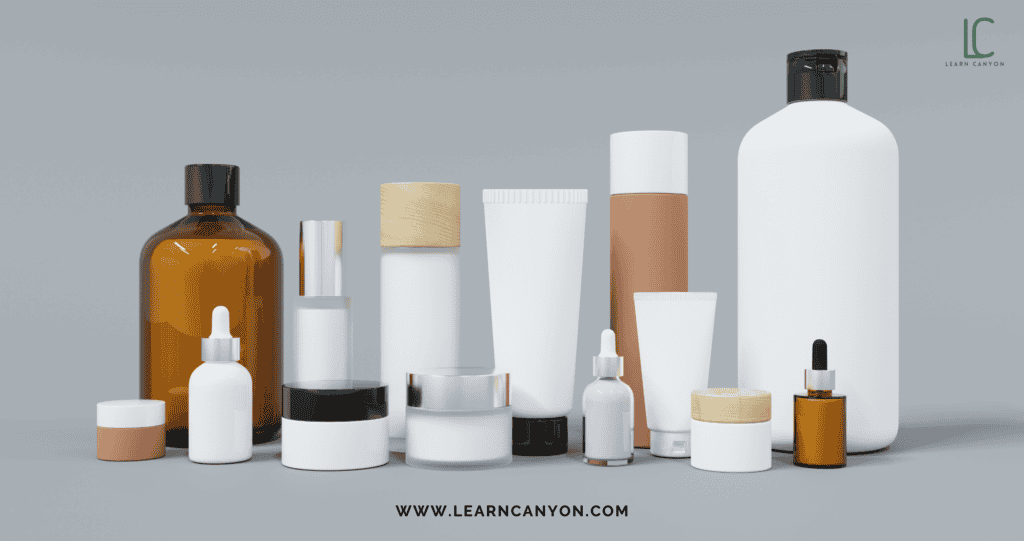
Understanding Store-Bought Skincare Products
Common people have been constantly brainwashed through social media, magazines and other mediums; that ALL STORE-BOUGHT SKINCARE PRODUCTS ARE BAD!
But how sure are they about this fact?
This is a huge MISCONCEPTION towards store-bought skincare.
We can’t always generalize all store-bought skincare items are unhealthy, allergic, reactive and bad for the skin. Although we do know that MOST STORE-BOUGHT SKINCARE does contain harmful chemicals, we must be aware of the fact that there are certain STORE-BOUGHT SKINCARE BRANDS that incorporate ORGANIC INGREDIENTS in their cosmetics with the right, ethical and sustainable LAB FORMULATION techniques and strategies, without harming animals and the environment.
Even though we might automatically believe that natural ingredients are superior to synthetic chemicals made in a lab, that isn’t always the case.
To ensure the safety and purity of their products, several store-bought skincare products use synthetic copies of some components, which are frequently molecularly identical to natural ones.
One of the most moisturizing and useful components for skin is hyaluronic acid, which is created in a laboratory for skincare products (by matching the identical chemical composition found in the human body). Many skincare firms used to obtain hyaluronic acid from animal sources, but thanks to laboratory synthesis, we are no longer required to HARM animals for this purpose.
Common store-bought skincare brands that are truly organic and are FORMULATED WELL in labs are;
- ORGANIC HARVEST
- SOUL TREE
- JUICY CHEMISTRY
- WELEDA
- OSEA
- TRUE BOTANICALS
- FOREST ESSENTIALS
And so on…..
Such store-bought organic skincare brands are NOT PREPARED AT HOME, neither are they called D-I-Y.
They are PROFESSIONALLY FORMULATED in labs by expert formulators. Let us explain how you can understand it is professionally formulated!
1. Expert Formulations and Ingredients
Professional formulators in the skincare field who possess an in-depth understanding of skin biology, chemicals, and formulas create high-end and effective skincare products.
To guarantee their effectiveness, safety, and best outcomes, these items go through extensive testing. DIY formulations could not include the exact ratio of active substances and might not address your particular skincare issues.
2. Advanced Research and cutting-edge technologies
By utilizing cutting-edge technologies and scientific developments, professional store-bought skincare firms make significant investments in research and development. Producing cosmetics that are created based on the most recent research and clinical trials, they remain at the forefront of skincare innovation.
DIY skincare might not have access to such cutting-edge technologies or the know-how to develop high-performance formulations.
3. Assurance of quality and safety
Professional store-bought skincare products must meet high criteria for both quality and safety. Purity, potency, and stability are ensured through rigorous testing during the manufacturing process, which takes place in controlled lab conditions. DIY skincare does not have the same level of quality control, which raises questions about the security of the ingredients, sanitation, and durability.
4. Professional Advice and Assistance
When you spend money on certain store-bought skincare products, you have access to guidance from estheticians or other skincare specialists. They can examine your skin’s needs, make personalized recommendations, and advise you on the best products and practices. DIY skincare could not provide the same degree of personalized assistance and knowledge.
5. Use of standardized and regulated ingredients
D-I-Y ingredients aren’t regulated so that creates a huge chaos in homemade skincare preparations.
Unlike components cultivated on farms, LAB-DERIVED compounds are manufactured in a much more regulated setting, allowing for the maintenance of purity levels. Using standardized and regulated ingredients is much safer, they reduce carbon footprint and provide consistency and purity.
Professional formulation techniques in labs can improve the safety and efficacy of many natural compounds, and vitamin C is a prime example. Vitamin C can be used safely in higher quantities since synthetic additives aid in stabilizing it and enhancing its effectiveness.
Salicylates, which are substances present in willow bark that have been used for generations to treat fever and inflammation, weren’t able to be mass-produced at a low cost until salicylate derivatives were created in a laboratory. This led to the development of the medication we now know as aspirin.
Since aspirin carries the same amount of active chemicals each time, it makes treatment considerably safer than merely sipping tea made from boiled willow bark.
That’s why skincare ingredients synthesized in LABORATORY can ensure that the product works effectively and safely.
6. Specific concentrations and combinations enhance efficacy
Professional formulators make it possible to calculate the quantity, concentration levels, combinations of ingredients and effect of specific natural components in certain store-bought skincare brands.
The use of natural products is frequently promoted by YouTubers and other influencers, yet some components, like lemon acids, are too abrasive and irritating to the skin.
Using a Vitamin C serum would be a far more effective option than using citrus juice. The proper quantity of safe active substances is included in Vit. C serums.
The skin’s brightness is improved, vitamin C protects against UV radiation and also aids in lightening skin pigmentation.
You need skincare products with scientific backing, to help you attain the ideal skin because the right mixture is necessary for these substances to work to their maximum potential. And D-I-Y can not guarantee any of these potentials to work on skin.
Keeping these standard procedures and implications in mind, we at Learn Canyon are always steadfast in making sure to help train our candidates to formulate organic skincare products at our labs using highly strategic formulation methods and techniques with a cost-effective approach that is unbeatable and highly effective than homemade skincare.
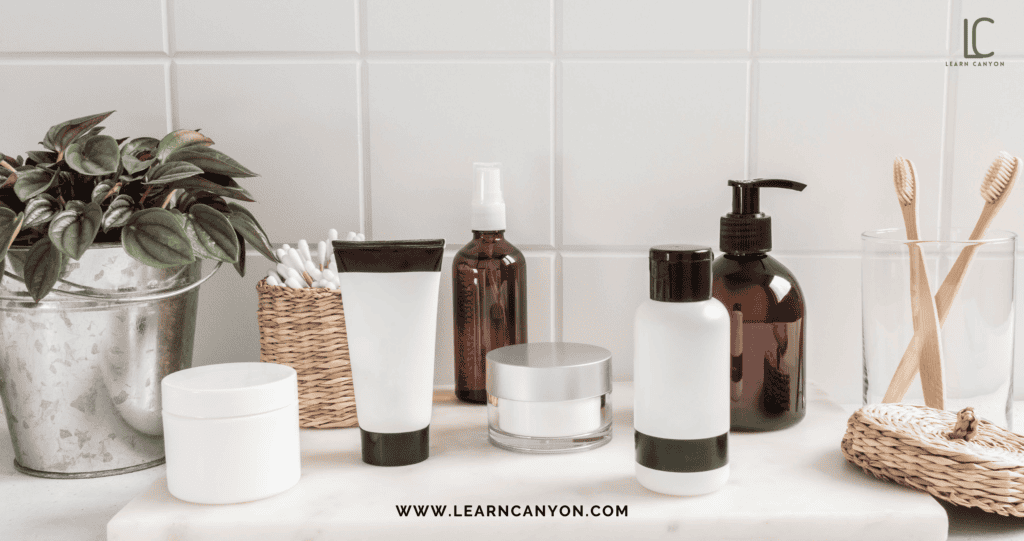
Final Thoughts
Certain store-bought skincare items are ultimately designed for the face. They have been developed via research and testing to control issues that we may have and contain chemicals and other compounds that have been scientifically shown to work with the delicate skin on the face. Whereas, DIY skincare is not.
The majority of us aren’t scientists or skincare experts. Most of us won’t find skin-friendly goods in our kitchen cabinets. If you’re itching for some do-it-yourself skincare, get some mask powder that you must mix with water in order to use; that’s about as do-it-yourself as skincare should ever get.
As tempted as you might be to try DIY skincare. You need to exercise diligence. Be wary of gurus who profess to be experts in the field of beauty.




